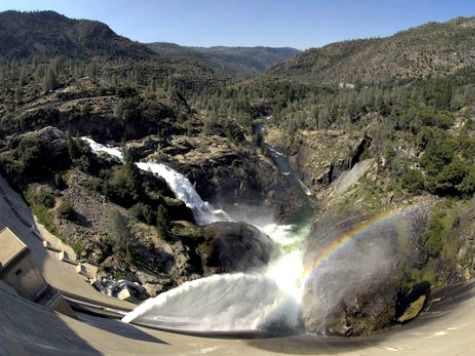According to the San Francisco Chronicle, a debate is emerging between the San Francisco Public Utilities Commission (PUC) and the Bay Area Water Supply and Conservation Agency over the potential disaster if the 89-year-old Mountain Tunnel, which supplies 2.6 million Bay Area homes and businesses with water, collapses.
The PUC acknowledges that the tunnel does have a chance of “catastrophic collapse,” which would require repairs costing $100 million or total replacement, costing up to $630 million. But the PUC’s 10-year-old 4.6 billion water system improvement program did not include the Mountain Tunnel in its plans.
The PUC was more focused on areas on the three major fault lines in the Bay Area that would be more likely damaged in an earthquake.
If the PUC decided to go ahead with plans to either fix or replace the tunnel, it could either close it down for two months every year for ten years to fix it, or build a new tunnel entirely. Steve Ritchie, the PUC’s assistant general manager for enterprise, said:
The risk right now is that the tunnel lining could continue to fail and, at some point, that might restrict our ability to get flow through it. That would be catastrophic to us — any rapid failure that results in the reduction of water flow by 25 percent. That’s a big deal. The drought keeps me awake at night a lot more than this does. Saying a section of this tunnel could fail — that applies to anything in our system… I think we see the risk of this increase over time, so the time is ripe to get started working on this. If we could accomplish it in 10 years, that would be a good thing. If it took longer than that, I would get more concerned.
But Nicole Sandkulla, the Bay Area Water Supply and Conservation Agency’s general manager, asserted that she had joined others to warn the PUC to look into potential problems with the tunnel, and they were upset when it “fell off that list.”
In January, Sandkulla wrote the PUC “about the surprising and alarming notice we received… that the Mountain Tunnel, a vital part of the San Francisco Regional Water System, is at serious risk of a catastrophic collapse, which could cut off, for months, 85 percent of the water needed by residents, businesses, and community agencies in the Bay Area.”
Ritchie responded that if there were a problem, customers would still have water; Bay Area reservoirs always contain four to five months’ worth of water. He added that by 2018, the Calaveras Dam will be completely reconstructed, concluding, “That’s first and foremost, so if there’s a failure of any kind, we have a plan in place to deal with the problem.” He also said the PUC is increasing monitoring of the tunnel to watch for incipient trouble, and that the PUC is about to work with three outside experts to find what they would recommend vis-à-vis the tunnel.
Sandkulla offered, “I’m not here to beat up the PUC for lack of progress — the question is, ‘Now that you know you have other infrastructure issues, how are you putting money and effort into making sure you are in a good spot to address it?’ I want to make sure they are moving promptly to address the situation, and taking the necessary precautions now, because nothing happens fast with this kind of issue — it takes time for a final fix.”
But she also understood addressing other issues first, adding, “This is different. As long as we stay focused, and the PUC stays focused on making progress on near-term actions and long-term plans, we can manage this risk.”

COMMENTS
Please let us know if you're having issues with commenting.